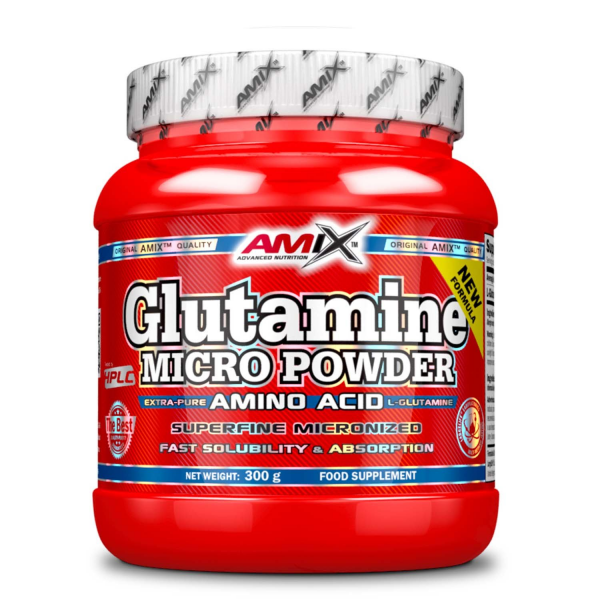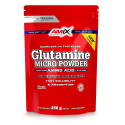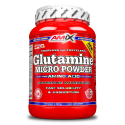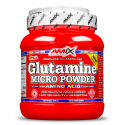Glutamine Powder
L-Glutamine is the most abundant amino acid in the body. Makes up more than 60% of the muscular amino acid pool.
L-Glutamine pwd.
Food supplement.
Net Weight: 250 g, 300 g, 500 g, 1000 g
L-Glutamine is the most abundant amino acid in the body. Makes up more than 60% of the muscular amino acid pool.
Glutamine is a conditionally essential amino acid that is abundant in the body and plays a crucial role in various physiological processes. It is categorized as conditionally essential because while the body can produce it, there are certain situations where the demand for glutamine exceeds the body's ability to synthesize it in sufficient amounts.
Glutamine is found in protein-rich foods such as meat, fish, dairy products, and certain plant-based sources like beans and legumes. It is also available as a dietary supplement in the form of glutamine powder or capsules.
In the body, glutamine serves several important functions. It is a primary fuel source for rapidly dividing cells, such as immune cells and cells in the intestinal lining. It supports immune system function, aids in the maintenance of gastrointestinal health, and plays a role in protein synthesis and cellular repair.
During periods of intense physical activity, stress, or illness, the demand for glutamine may increase, leading to a potential depletion of glutamine levels in the body. This is why glutamine supplementation is often used by athletes, bodybuilders, and individuals with certain medical conditions.
Glutamine has been associated with various benefits, including:
-
Muscle recovery: Glutamine may help reduce muscle soreness and improve recovery after intense exercise or resistance training.
-
Immune support: Glutamine plays a critical role in supporting immune system function, particularly in times of stress or illness.
-
Gut health: Glutamine is important for maintaining the integrity of the intestinal lining and supporting gastrointestinal health.
-
Nitrogen balance: Glutamine is involved in the regulation of nitrogen balance in the body, which is important for protein synthesis and muscle maintenance.
While glutamine supplements are generally considered safe for most individuals, it's important to note that they may interact with certain medications or medical conditions. It's always advisable to consult with a healthcare professional before starting any new dietary supplement.
The dosage of glutamine can vary depending on individual needs and specific goals. It's recommended to follow the instructions on the product label or consult with a healthcare professional to determine the appropriate dosage for you.
It's worth mentioning that a well-balanced diet that includes protein-rich foods can provide an adequate amount of glutamine for most individuals. Supplements should not be seen as a replacement for a healthy diet but rather as a potential additional support in specific situations or for individuals with increased needs.
Overall, glutamine supplementation may be beneficial in certain contexts, such as intense physical training, recovery from illness or injury, or specific medical conditions. However, individual responses can vary, and it's important to consider personal circumstances and consult with a healthcare professional for personalized advice.










